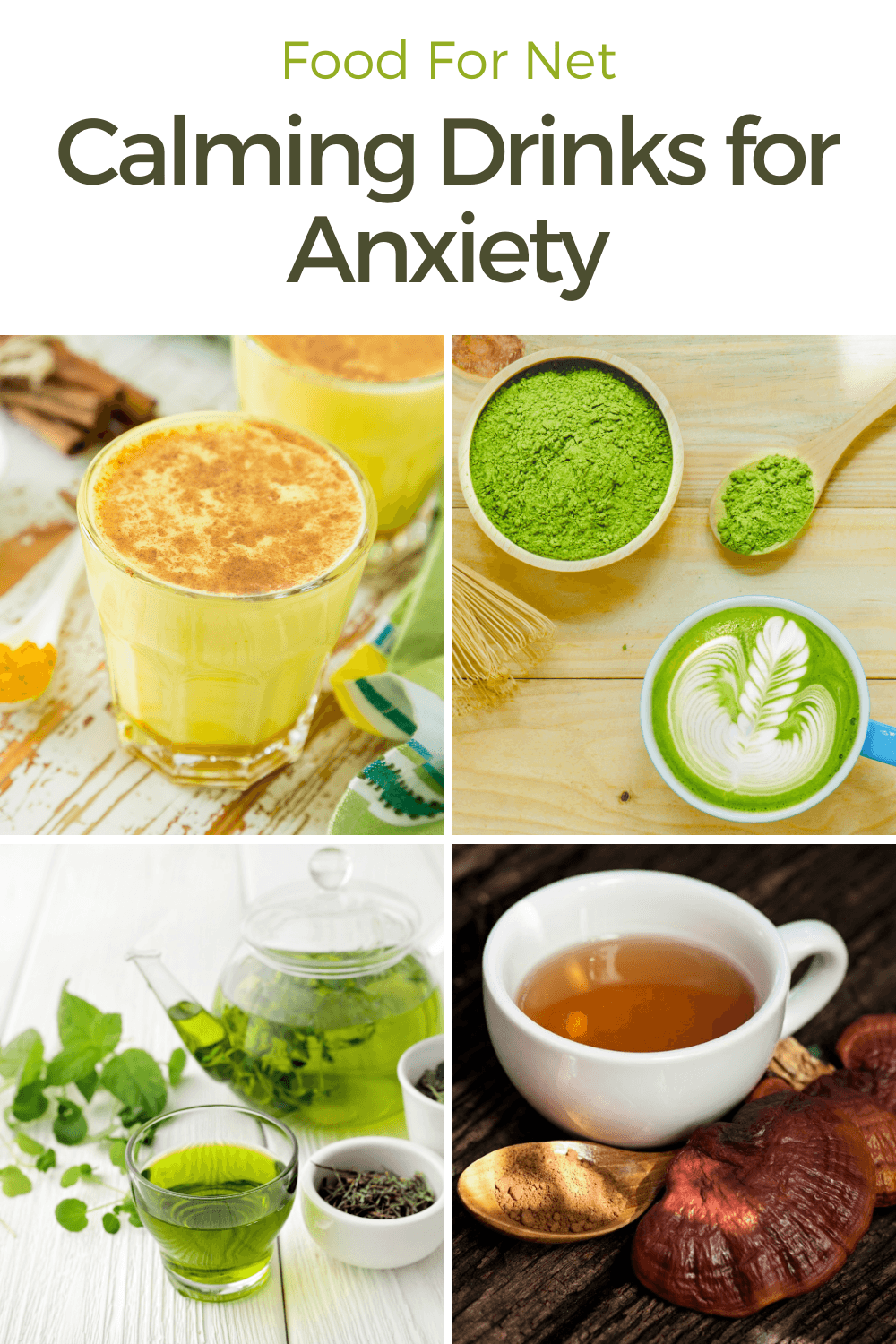
Anxiety disorders are now the most common mental health problem in the United States. To make matters worse, many sufferers deal with depression at the same time. While there are plenty of therapies and medications out there, sometimes you just need something a little easier and closer to home. That’s where calming drinks for anxiety come in.
The idea is simple. The drinks in this list can all help you to wind down and feel better. Some have been studied for their potential to help with anxiety. In contrast, others are useful because they keep you hydrated and won’t ramp your body back up again. Because of this, most of the drinks should help you to sleep as well.
If you want some more ideas, we also have a list of foods for anxiety and one of foods that help with depression. While the foods and drinks featured on these lists won’t cure a mental health problem overnight, focusing on foods and drinks like these is powerful in the long-term.
These drinks have other advantages too. They’re all healthy and natural ways to wind down. This makes them ideal even anxiety isn’t a major problem for you.
Drinks That Help With Anxiety
- Turmeric Latte
- Ginger Drinks
- Maca Drinks
- Reishi Drinks
- Lemon Balm Tea
- Peppermint Tea
- Chamomile Tea
- Valerian Root Tea
- Green Tea
- Matcha Latte
- Smoothies
- Water
- Coconut Water
- Tart Cherry Juice
- Apple Cider Vinegar
- Warm Milk
- Warm Plant-Based Milk
- Vegetable Juice
- Be Careful With Alcohol
Turmeric Latte

Coffee and energy drinks are generally poor choices if you have anxiety, so you’ll need some caffeine-free alternatives. A turmeric latte is the perfect place to begin. After all, turmeric has a stellar reputation for its health benefits.
It even has antioxidant functions and has been linked to decreased anxiety. The drink is anti-inflammatory too. While it’s not clear how strongly anxiety and inflammation are linked, reducing inflammation might help with anxiety.
This hot drink is also naturally caffeine-free and tends to be soothing.
The basic version of a turmeric latte just relies on turmeric powder, black pepper, and some type of plant-based milk. The black pepper is important, as it can help your body to absorb the curcumin from the turmeric.
You can turn to whatever plant-based milk you like, but look for an unsweetened product. After all, excess sugar won’t help with anxiety.
Ginger Drinks

Ginger isn’t just a way to settle your stomach and reduce nausea. The spice has been linked to a wide range of benefits. This isn’t surprising either, as it contains many interesting bioactive compounds and plenty of antioxidants.
Among the effects is the ability to influence serotonin levels, lower stress, and decrease anxiety. Ginger can be added into your diet in many ways, including using it as a cooking ingredient or even looking for supplements.
Ginger beverages are a better choice still, as you can use fresh ginger and can drink them at any time of the day. The simplest option is often called ginger tea. This is where you’re just using hot water and fresh ginger to create a hot herbal tea.
Other ginger drinks add in more ingredients to create something even better for you. For example, you could make a hot drink that includes ginger, lemon, and honey. You can also add ginger to popular beverages, like chai, a turmeric latte, or even a smoothie.
Maca Drinks

Maca root has become a trending ingredient, mostly because of its potential benefits. It can be purchased as a powder and mixed into many drinks, including smoothies, coffee, and hot chocolate.
Research has shown that the powder can help with blood pressure and depression. The observed outcomes could help with anxiety symptoms as well.
Reishi Drinks

Reishi mushrooms are sometimes promoted for their ability to help you relax and de-stress. One reason is the compound triterpene, which helps to calm you. The mushrooms could even help to improve sleep.
As always, evidence in humans is limited. Still, there’s enough anecdotal evidence that the approach could be worth trying for yourself.
Rather than relying on reishi mushrooms themselves, why not turn to reishi powder instead? This can be easily added to hot drinks or brewed to make herbal tea. Many places that sell the powder will also provide you instructions on what to do with it.
Lemon Balm Tea

It’s easy to overlook the power of scent. Yet, the smells we experience are more than just enjoyable. They can directly affect our limbic systems, which means that they influence our emotions and even our ability to learn.
This is one reason why essential oils are so popular. You can experience many of the same benefits from tea, as you’re inhaling the scent with each sip. Plus, with tea you’re also ingesting compounds from the herbs, which could provide extra advantages.
The power of scent is one reason for using lemon balm tea to help reduce anxiety. The aroma of the tea is naturally calming, and the tea tastes good too.
You can also find products that combine lemon balm tea with other herbs to create a more complex soothing tea. Look for products that use terms like anti-anxiety, de-stressing, or calming as part of their name. Be sure to read the ingredient label before trying the tea, as companies sometimes include unexpected ingredients.
Peppermint Tea

Here’s another drink that’s powerful because of its scent. Peppermint has a relaxing quality that helps to melt away stress and anxiety.
The methanol in the tea is useful too. This can have a muscle relaxing effect, which reduces some of the physical symptoms of stress and anxiety. This is important because lowering stress in your body can then affect your emotional responses.
While the tea will work well for most people, it isn’t recommended during pregnancy.
In fact, many herbal teas can interact with medications or health conditions, so it’s essential to do your research first. Make sure the tea is a suitable choice for you before you start drinking it regularly.
Chamomile Tea

You probably already know about chamomile tea for anxiety. The drink is well-known for its calming effects.
The benefits aren’t just because you’re drinking a hot caffeine-free cup of tea either. Studies have shown that chamomile extract can help with the symptoms of generalized anxiety disorder. The tea hasn’t been studied to the same depth, but it likely has similar effects on anxiety.
Valerian Root Tea

Valerian root tea is another herbal tea that’s often used to decrease anxiety. The root has a long history in herbal medicine as a sedative, so its use in tea isn’t too surprising. In particular, the herb has been linked to increased gamma-aminobutyric acid (GABA) levels in the brain.
Valerian has been studied more than many other herbs. Although, as normal, the results of research are mixed. Many of the studies have focused on valerian supplements, often using other herbs at the same time.
Still, valerian clearly has a calming effect. People often drink the tea at night, as it makes them drowsy. This effect is useful too, as getting enough sleep is crucial for keeping your anxiety levels in check.
Green Tea

While herbal teas have some valuable properties, we can’t forget regular teas either. Green tea is easily the most powerful option, containing more antioxidants than other types of tea.
This isn’t the only benefit either. Green tea also contains theanine. This amino acid may help you to relax without making you drowsy. That effect is one reason why theanine is thought to help with mood disorders. It can also help with anxiety, depression, and stress.
Green tea does contain caffeine, which isn’t ideal for anxiety. Still, the amount of caffeine is lower than in coffee and doesn’t cause jitteriness in the same way that coffee does. You can also look for low caffeine green tea. This still provides mood benefits, while the lower caffeine means that the tea shouldn’t set off any anxiety.
Matcha Latte

Matcha powder is the next step up from green tea. It offers all the same benefits as green tea, just in a more concentrated form.
You can prepare matcha in various ways. One of the best is to make a matcha latte. Just like with the turmeric latte, you’re not using any coffee in this drink. Instead, you’re relying on matcha powder, milk, and perhaps some sweetener.
The type of milk you use is up to you. Dairy milk will give you a creamy drink, while most types of plant-based milk will work well too. You might prefer plant-based milk if you struggle with anxiety, as there are concerns about the link between dairy and inflammation.
There’s another advantage too – matcha doesn’t taste the same as green tea. It does have some of the same undertones, but there are distinct differences as well. Many people find matcha more enjoyable than green tea – making it ideal if you find green tea too grassy.
Smoothies

One of the best things about smoothies is that they can be whatever you want them to be. You can easily tailor a smoothie to your needs by picking and choosing the ingredients carefully.
For anxiety, you’ll want to keep the sugar content of your smoothie relatively low. You should also focus on ingredients that are high in antioxidants and phytochemicals. Dark leafy greens are powerful here, as are berries.
Don’t forget spices either. Turmeric and ginger are popular for their health benefits, and both have been linked to decreased anxiety.
Water

Don’t forget about water either. While water isn’t a source of nutrients or potent plant-based compounds, it is still crucial for your health. You need to stay hydrated for your body to function properly. Your body doesn’t respond well when you’re dehydrated, which isn’t a good situation for your anxiety.
Besides, water doesn’t contain any sugar or caffeine, so there’s nothing to set off your anxiety.
If you struggle with drinking enough plain water every day, don’t be afraid to add flavoring ingredients. Using a little lemon or lime juice is an easy approach. You could even add a splash of cranberry juice, just enough to give your water a little extra kick.
Infused water can be fun too. This involves soaking pieces of fruit in your water for at least a few hours. The water takes on the flavors of your ingredients. You can even include some vegetables, like cucumber, and fresh herbs.
You can use store-bought products for flavoring too, but these should be a last resort. Many such products are sugar-packed or use artificial sweeteners. The sugar definitely isn’t good for your anxiety and artificial sweeteners aren’t necessarily any better.
Coconut Water

Coconut water is another way to stay hydrated. It has more flavor than water and offers some electrolytes too. The electrolytes might even make coconut water more hydrating than water.
There is some sugar present too. This isn’t a cause for concern, as the amount of sugar is low. As such, you might get a little energy from coconut water without a sugar rush and subsequent crash.
Tart Cherry Juice
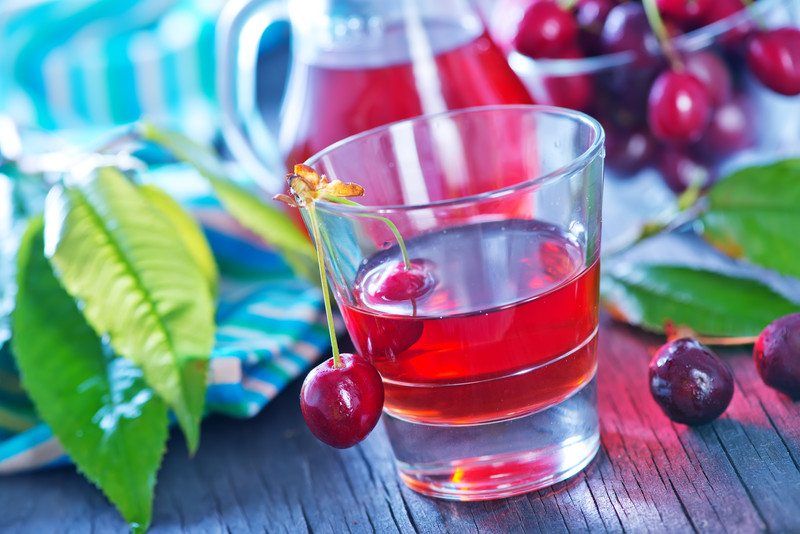
Fruit juice is generally a poor choice for anxiety, as it contains lots of sugar and little fiber, which leads to a blood sugar spike. Tart cherry juice is a possible exception.
This juice gives you access to all the beneficial phytochemicals in tart cherries, including quercetin, which is linked to a sense of calmness. Tart cherry juice may help you to sleep too.
Apple Cider Vinegar

Apple cider vinegar doesn’t have a direct link to anxiety. However, it can help indirectly, as it can stabilize your blood sugar levels. That effect is significant, as rapid changes to blood sugar levels can easily lead to anxiety.
You do need to be careful with apple cider vinegar, as it is acidic. Drinking the vinegar straight can sometimes burn your throat or damage the enamel on your teeth. To avoid those issues, simply dilute the vinegar before using it. Even just mixing it into cold or warm water should be enough.
Alternatively, you can make a tonic using apple cider vinegar, water, and some healthy ingredients like lemon juice and ginger.
Warm Milk

Warm milk is a common choice right before bed, one that’s often thought to help you sleep. Part of the effect comes from the warmth of the milk. This is the same reason why tea is such a good drink in the evening.
Milk can be one of the best calming drinks for children, as they’re already familiar with it.
Plus, milk contains tryptophan. This amino acid can be converted to serotonin. It’s a powerful way to promote calmness and make sleep easier.
Of course, milk from cows is controversial these days. Some theories suggest that dairy foods can promote inflammation. If that’s true, then milk could be a poor choice for anxiety.
The evidence here is mixed, so you’ll need to decide for yourself. Pay attention to how your body responds to warm milk. If you experience increased anxiety symptoms, then this isn’t the right drink for you.
If your only problem with milk is the lactose, then you could try lactose-free milk instead. This is regular milk that’s been treated with the enzyme lactase. This enzyme breaks down the lactose for you (you can also find lactase supplements that help your body process lactose for a short time).
Warm Plant-Based Milk

Most types of plant-based milk can be warmed and served in the same way as regular milk. They don’t offer the same nutrient composition as dairy milk, but they are free from lactose and shouldn’t have any effect on inflammation.
Almond milk may be very relevant for sleep, as this offers some tryptophan too. If you’re taking this approach, try making the milk at home, as store-bought products are mostly water. Homemade almond milk almost always gives you more nutrients from the almonds.
Why not experiment with other types of plant-based milk too? They all have distinct flavors, so it might take some trial and error before you work out which one you enjoy the most.
Vegetable Juice

While most fruit juices don’t work well for anxiety, vegetable juice is an entirely different story. It’s much lower in sugar and contains many nutrients from the vegetables.
The best vegetable juices will rely on multiple fresh vegetables, including spinach, kale, and cucumber. You’ll probably need some fruit in there as well to give you enough sweetness. Just be careful with the amount of fruit, as too much won’t be helpful for your blood sugar levels.
It’s best to make your own vegetable juice using a juicer. If that’s not an option, you could always try a juice of the month club.
Be Careful With Alcohol

The connection between alcohol and anxiety is interesting. Many people do use alcohol to help with anxiety, especially right before a social event. Alcohol can even be a tool for taking the edge of a severe panic attack.
Alcohol is also a double-edged sword. It tends to make anxiety symptoms worse in the long-term. There’s also the risk that you’ll end up dependent on alcohol to manage your anxiety, which isn’t what you want.
This connection doesn’t mean that you need to avoid alcohol entirely. Simply be careful about when you drink and why. If taming your anxiety is the main reason for wanting a drink, it’s better to choose another item on this list instead.

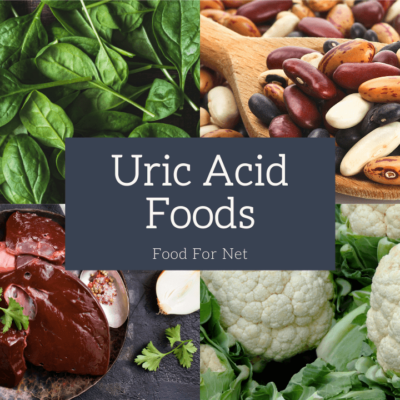

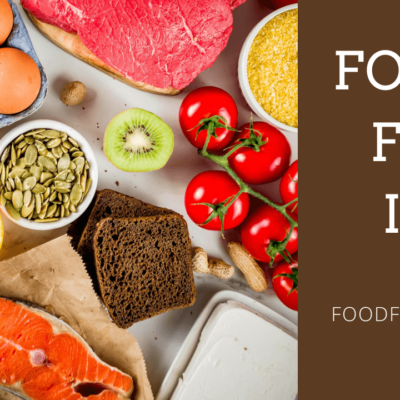

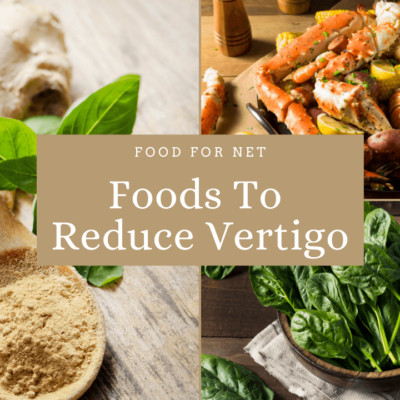
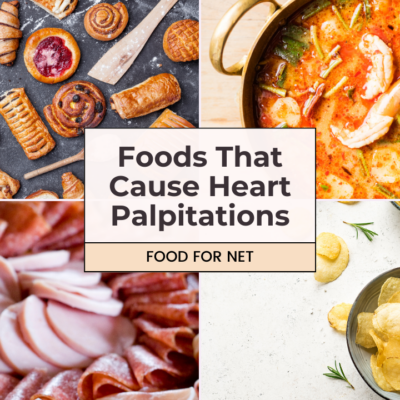
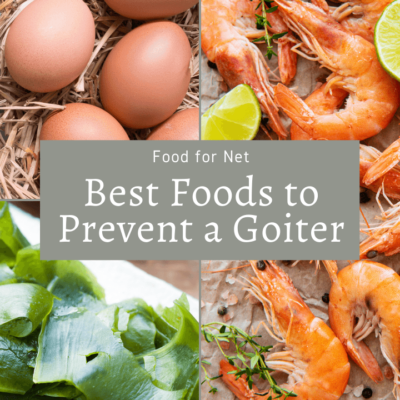


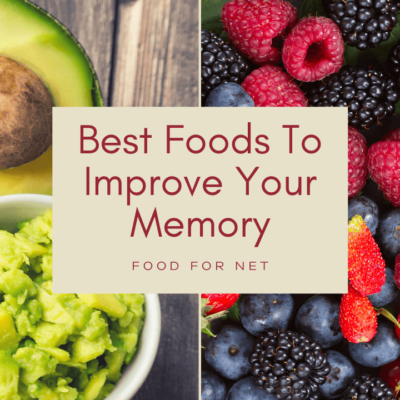
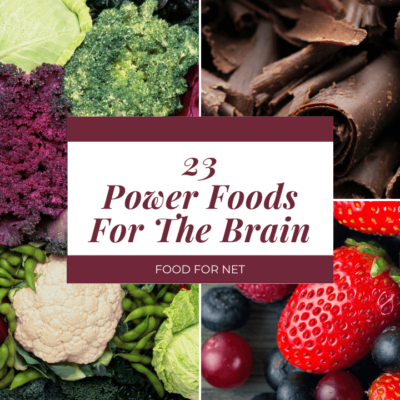
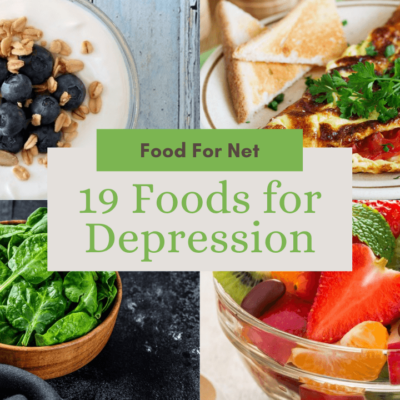
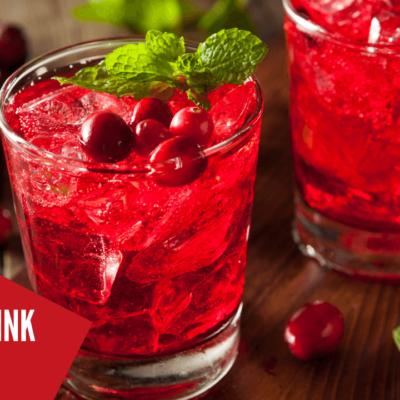
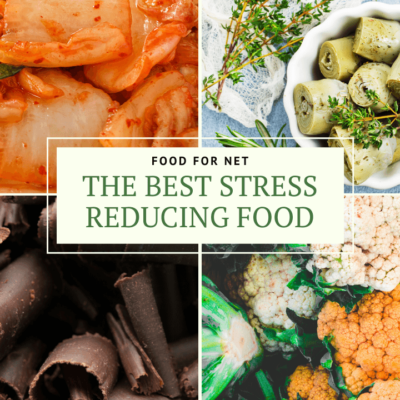
 19 Foods That Help With Depression
19 Foods That Help With Depression
Thanks Food For Net !
Thanks for sharing this useful post